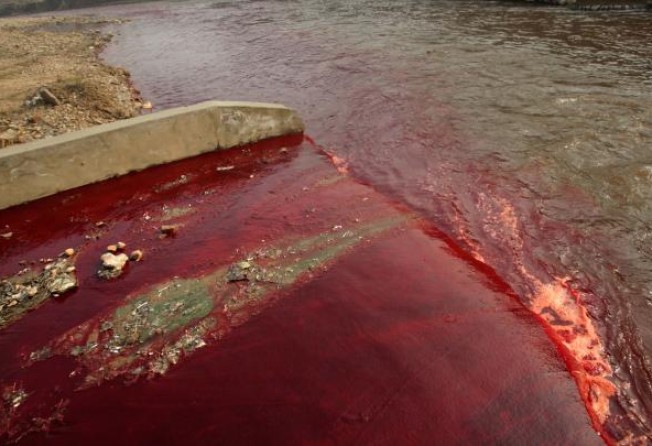Textile industry must lead in clean-up of polluting production
Ada Kong applauds China's move to require industry disclosure of pollutants in textile production, and backs the search for safer alternatives

Hong Kong has just played host to the Sustainable Textile Conference. Given that the textile industry uses up to a quarter of all chemicals produced, it's clear that pollution from toxic chemicals is a critical problem.
By its nature, chemical pollution is hard to monitor, and therefore control, without factory owners providing data. Thus, industry players should be prepared to disclose such data.
The Rio summit 20 years ago affirmed the right of communities and workers to know about toxic chemicals. It called on industry to "provide data for substances used … for the assessment of potential risks to human health and the environment". It said such data should be made available not only to the relevant national and international bodies, but also "other interested parties involved in hazard and risk assessment, and to the greatest possible extent to the public also".
To put this in practice, many governments have introduced their own inventory system which allows an industrial facility to report to an authority the use, release and transfer of chemicals of concern. This data is disclosed for effective monitoring. Several countries, including the Netherlands, the United States, Japan, Canada, Finland and Ireland, have such systems in place.
In China, the Ministry of Environmental Protection said in July that the draft of measures for the registration of hazardous chemicals for environmental management - a system similar to the "pollutant release and transfer registers" used elsewhere - will be released for consultation by the end of the year and is likely to take effect next year. Industries interested in the China market have every reason to improve their chemical monitoring systems as soon as possible.
It is not only about the public's right to know but, more importantly, about empowering all stakeholders of the environment to monitor and influence the environmental performance of a facility. A transparent pollutant registration system can stimulate voluntary initiatives to reduce the use of toxic chemicals. When the government, academic bodies, non-governmental organisations and the public can access the data and review it, corporations have nowhere to hide and must take responsibility for the environment.
Greenpeace has talked to many of the Hong Kong textile suppliers, which all show great concern for the environmental impact of their facilities. While all of them are keen to find solutions, the biggest challenge is that the price of safe alternatives to hazardous chemicals remains high in China due to a lack of supply. Unless more suppliers realise the urgency of using safe chemicals and demand from the industry goes up, the deadlock will remain. This just demonstrates how important it is to have suppliers working together.
Multinational fashion brands are important partners to many suppliers, and they should take the lead to unite the whole industry to move forward.
A reputable brand does not only mean stylish designs or classy advertisements. It should also mean being responsible for society and the environment. Consumers are expecting the big industry players to lead the trend in going green and being transparent.
Ada Kong is a Greenpeace campaigner